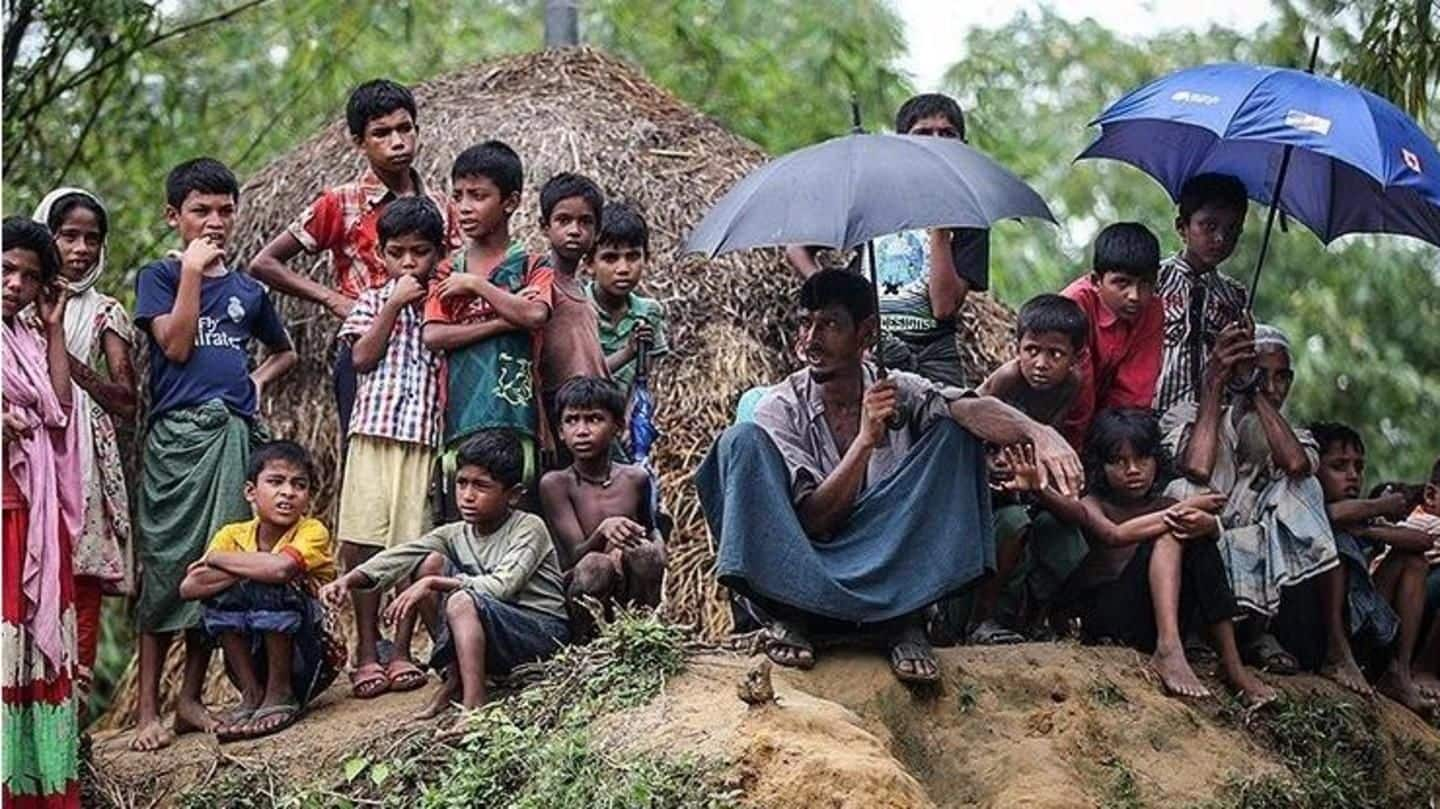
"Our families will be killed": Rohingyas fear forthcoming monsoon
What's the story
Stranded on a dusty slope in Cox's Bazar refugee camp, Osiur Rahman looked to the hill where a Rohingya girl was buried in a landslide just days earlier and pondered over his chances of survival if he comes across another calamity.
"Our families would be killed. There are children everywhere around here. We constantly fear that rain could trigger a landslide," said the 53-year-old.
Threatening monsoon
Upcoming monsoon poses the most serious threat to Rohingyas
For the 700,000 Rohingya Muslims who have fled to southeast Bangladesh in the past nine months, the approaching monsoon season poses the most serious threat since they were violently expelled from Myanmar.
Close to one million of the stateless Muslim minority live in the Cox's Bazar district but the new arrivals, stranded on unstable hills in bamboo and plastic shacks, are especially vulnerable.
Safe land needed
Only 21,000 out of 200,000 Rohingyas have been relocated
A massive operation to support the camps against disaster is in overdrive, with bulldozers levelling hills and refugees bunkering down however they can.
There is a dearth of safe land to relocate the estimated 200,000 refugees in direct danger of floods and landslides, and just 21,000 have been moved so far.
Cox's Bazar has been hit by cyclones for three years in a row.
Predictions
They could face another calamity: UNHCR operations head
"We could literally have lives lost as people slide down hillsides and valleys are flooded with water," Kevin J. Allen, head of the UNHCR refugee agency's operations in Cox's Bazar, told AFP.
He added that they could face another calamity.
"The camps' makeshift homes are predicted to receive more than 2.5 metres of rainfall over three months starting June," he said.
Information
Cyclone disasters in Bangladesh
Cyclones have killed tens of thousands along the Bangladesh coast in recent decades and countless more have been swept to their deaths in floods and landslides.
Preventive measures
Toilets being fortified with sandbags; preventive measures being taken
The huge endeavour to prevent disaster has seen slopes vulnerable to collapse flattened.
Toilets are being fortified with sandbags to prevent a major disease outbreak.
But there are limits to how much can be done.
Bangladesh has restricted the use of sturdier materials for shelters because it may affirm the Rohingya plan to stay, contrary to Dhaka's desire to return them to Myanmar.
Unpromising future
Mosques and community centres could shelter 150,000 people
Bangladesh has freed up hundreds of hectares, but most is hilly and prone to landslides.
Mosques and community centres could shelter 150,000 people if needed, said Kazi Abdur Rahman, acting district administrator of Cox's Bazar.
"But if there is a big cyclone, and all these people need relocating, it is not possible to shift one million people," he said.
Survival needs blocked
Cyclone could cut food supply to camps for a week
Aid groups say a cyclone or storm could cut access of food and supplies to the camps for a week.
The World Food Programme's emergency coordinator Peter Guest said thousands of porters were being assembled to carry food on foot if access roads were cut.
"What else can we do? If Allah does not protect us, we will die," said 60-year-old refugee Dil Mohammad.